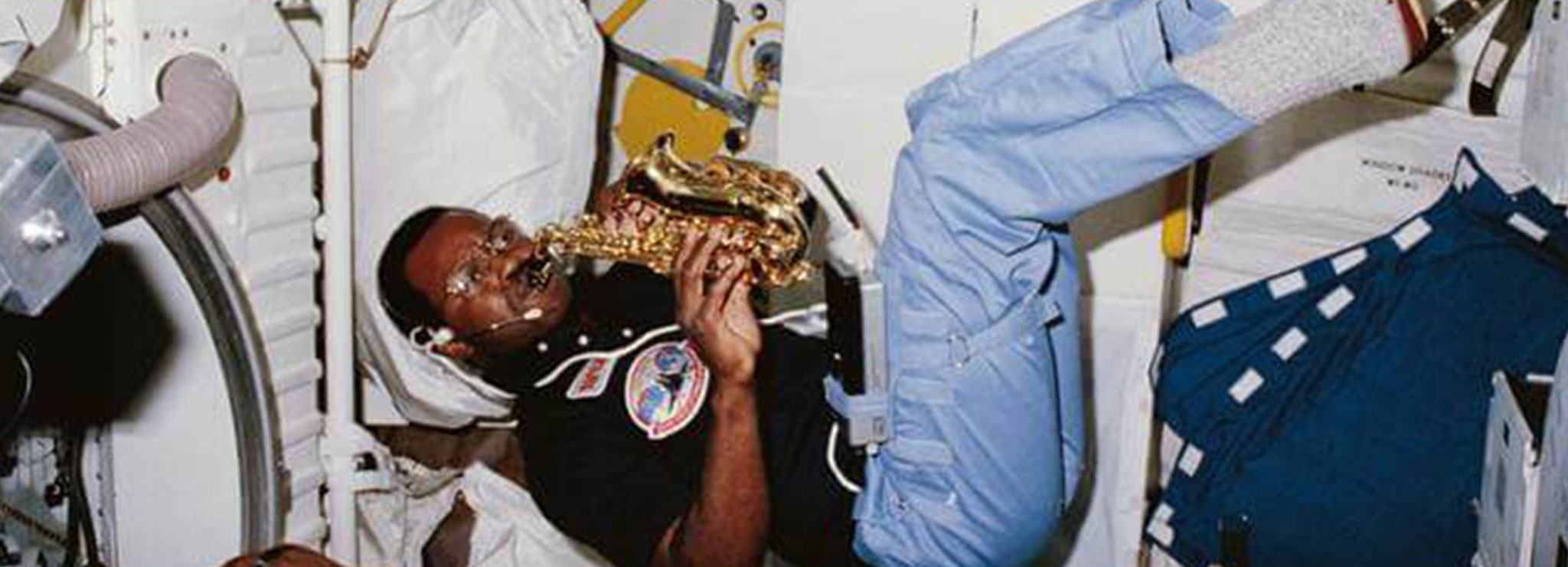Blogs | 2.15.2022
Remembering the Life and Legacy of Ronald McNair

Every February, the United States, shines a special light on the sacrifices and contributions made by African Americans that have helped shape our country. We’re honored to shine a spotlight on one of those individuals, Ronald McNair. McNair, a physicist, the second African American in space, and a Mission Specialist on the Challenger STS-51L crew.
McNair was born in 1950 in Lake City, South Carolina. As a young child, his love for science blossomed. So much so – he wanted to check out science textbooks at age nine from the local library. When he ventured to the library checkout with books in hand, the librarian refused to let young McNair take the books because of the color of his skin and even called the police to remove him from the library. His patience while waiting to explain his case to the police paid off, and he was allowed to borrow the books. Today – that library is named after him.
McNair persevered and remained committed to his education, graduating as valedictorian of his high school class and then attending North Carolina A&T State University, where he earned a bachelor’s degree in engineering, followed by a doctorate in Physics from MIT. McNair soon became a recognized expert in LASER Physics while working as a staff physicist with Hughes Research Laboratory. Outside of science, he enjoyed karate and playing the saxophone – something he did in space during the STS-41B mission in 1984.
In 1978, McNair was selected as one of 35 applicants for NASA’s astronaut program and became the second African American to go to space aboard the Challenger STS-41B mission, which launched two communications satellites and featured the first untethered spacewalk.

A couple of years later, McNair was selected for the Challenger STS-51L mission, which tragically ended just 73 seconds after liftoff.
McNair’s legacy lives on in the lives of his family, and in the continued work of Challenger Center.
In the face of doubt, segregation, and adversity, Dr. Ronald McNair broke barriers and set an example of the greatness that students of all backgrounds can achieve.
